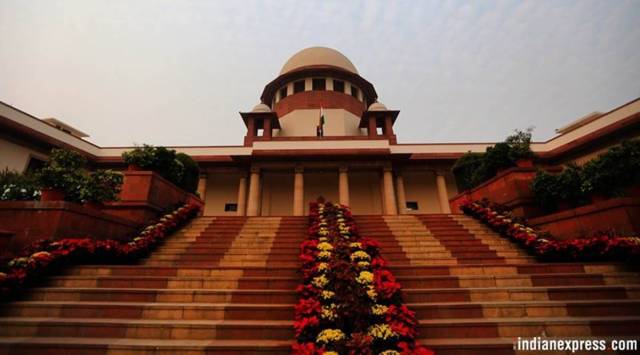Re-examining ruling on immunity to MPs & MLAs, SC reserves order
On Wednesday, Solicitor General Tushar Mehta, appearing for the Centre, had told the bench, also comprising Justices A S Bopanna, M M Sundresh, P S Narasimha, J B Pardiwala, Sanjay Kumar, and Manoj Misra, that the minority view of Justice S C Agarwal in the Rao case is the “correct view”.
 He said that the court instead of holding P V Narasimha Rao as bad law, could declare it per incuriam “since it does not take into account the statutory scheme of the Prevention of Corruption Act”.
He said that the court instead of holding P V Narasimha Rao as bad law, could declare it per incuriam “since it does not take into account the statutory scheme of the Prevention of Corruption Act”. A seven-judge Constitution Bench of the Supreme Court on Thursday reserved its judgment on the question whether the immunity available to MPs and MLAs under Articles 105 (2) and 194 (2) of the Constitution from prosecution will extend to cases of bribery as well.
The bench presided by Chief Justice of India D Y Chandrachud was constituted to re-examine the correctness of the 1998 five-judge Constitution Bench judgment in the P V Narasimha Rao case wherein the majority held that legislators were immune to prosecution on bribery charges for their speech or vote in Parliament.
On Wednesday, Solicitor General Tushar Mehta, appearing for the Centre, had told the bench, also comprising Justices A S Bopanna, M M Sundresh, P S Narasimha, J B Pardiwala, Sanjay Kumar, and Manoj Misra, that the minority view of Justice S C Agarwal in the Rao case is the “correct view”.
The minority ruling said that “a Member of Parliament does not enjoy immunity under Article 105(1) or under Article 105(3) of the Constitution from being prosecuted before a criminal court for an offence involving offer or acceptance of bribe for the purpose of speaking or by giving his vote in Parliament or in any committees thereof”.
On Thursday, Attorney General R Venkataramani urged the court to strike a balance between the freedom of legislators to perform legislative functions without being impaired or exposed to ‘undue exertions and coercion’ and the prevention of the dilution of the trust in their office and its importance.
He said that “the view of the minority that an act preceding a vote or a speech may not at all qualify for protection regardless of its connection with the said vote or speech also needs to be moderated”.
Referring to the case of Jharkhand MLA Sita Soren in whose case the question of referring the Rao judgment to the seven-judge bench had arisen, the AG said the Rao ruling would not apply to it as Rajya Sabha elections are an independent process governed by a special set of rules, and as such, not part of the work, business or function of the legislature.
SG Mehta said that if the offence of bribery is complete outside the House, then the court need not be bothered about the immunity aspect.
But the CJI said “the place where it is completed, or whether it antecedent or subsequent to the speech really should not in that sense really matter because then it will be a fortuitous circumstance”.
Illustrating this with a hypothetical example, the CJI said “suppose the agreement to pay a bribe is arrived at within the House itself. May not be beyond the realm of possibility that the offer and acceptance takes place within the House, maybe when a third party is giving the House for a committee meeting…It makes no difference.”
Mehta also submitted that “the obtaining, accepting, or the attempting to obtain an undue advantage shall itself constitute an offence even if the performance of a public duty by a public servant is not or has not been improper”.
He said that the court instead of holding P V Narasimha Rao as bad law, could declare it per incuriam “since it does not take into account the statutory scheme of the Prevention of Corruption Act”.







